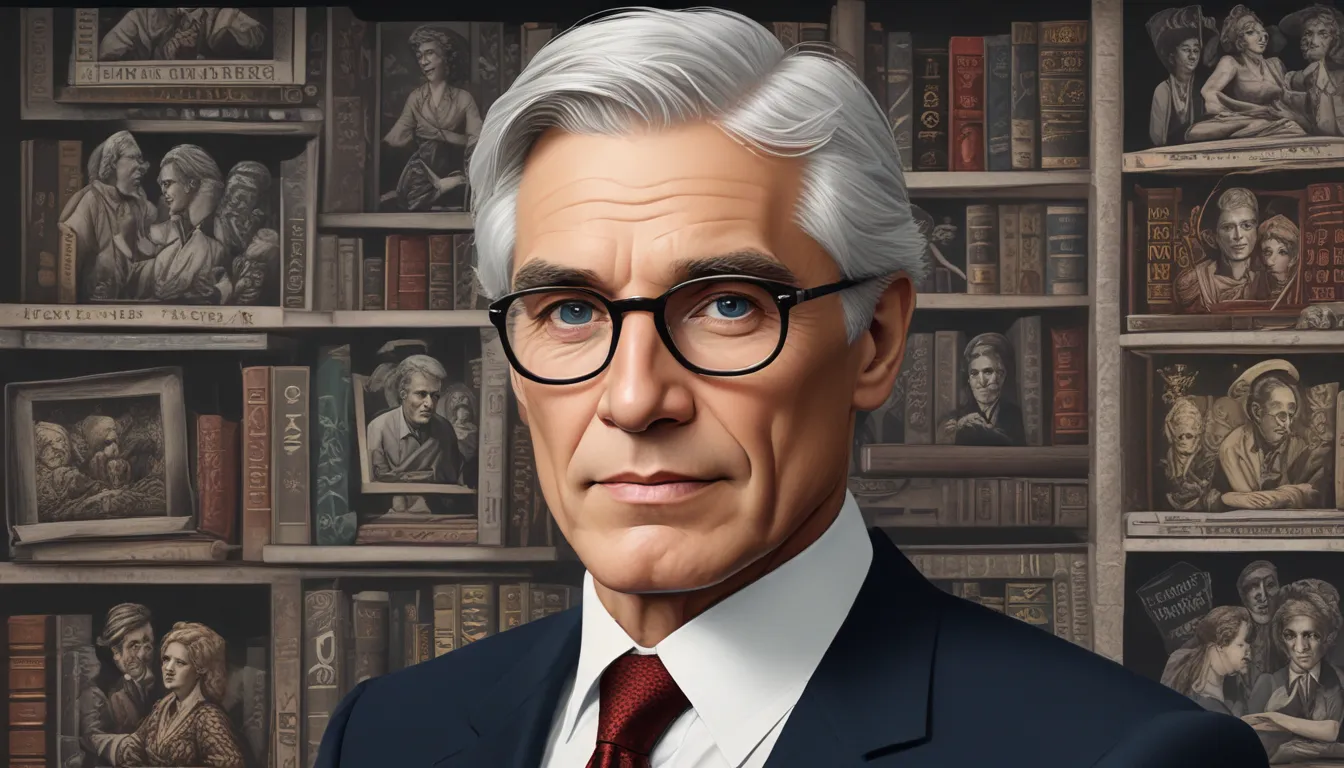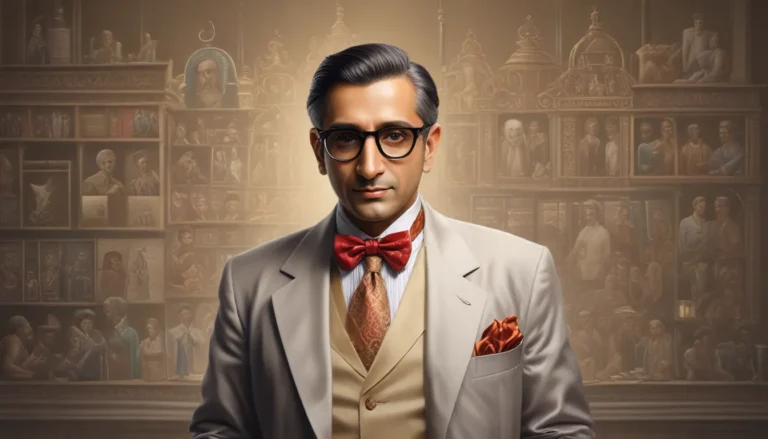The images in our articles may not match the content exactly. They are used to grab your attention, not to show the exact details in the text. The images complement the text but do not replace it.
Robert Nozick, a renowned philosopher and political theorist, left an indelible mark on the academic world with his groundbreaking ideas and thought-provoking theories. Born on November 16, 1938, in Brooklyn, New York, Nozick’s intellectual journey led him to study philosophy at Columbia University and earn his Ph.D. from Princeton University. Throughout his career, he challenged conventional wisdom, advocated for individual rights, and delved into topics such as libertarianism, political philosophy, and the nature of human existence.
Unveiling the Brilliance of Robert Nozick
Robert Nozick’s intellectual prowess and impact on the field of philosophy are undeniable. His ideas continue to inspire critical thinking and shape contemporary debates. From his influential work “Anarchy, State, and Utopia,” to his unique stance on political theories, Nozick’s legacy endures, offering valuable insights into the complexities of ethical and political philosophy.
The Journey of an Intellectual Powerhouse
Nozick’s most famous work, “Anarchy, State, and Utopia,” published in 1974, explored libertarianism, individual rights, and the role of government in society. He advocated for personal autonomy and limited state control, challenging conventional notions of distributive justice and societal organization. Nozick’s clear and logical writing style made complex philosophical concepts accessible to a wide audience, solidifying his reputation as a leading figure in contemporary philosophy.
- Born to Think: Nozick’s early experiences and education at Columbia University shaped his philosophical perspective, leading him to challenge established norms and ideologies.
- Impactful Education: His tenure at Harvard University allowed him to influence a new generation of thinkers and co-found the Harvard Program in Ethics and the Professions, promoting ethical awareness across various fields.
- Thought-Provoking Concepts: Nozick’s concept of “The Experience Machine” challenged traditional views on pleasure and happiness, sparking intriguing debates on human desires and fulfillment.
The Intellectual Landscape of Robert Nozick
Influenced by philosophers such as John Locke and Friedrich Hayek, Nozick engaged in debates with prominent figures like John Rawls, stimulating discussions on ethics, justice, and political philosophy. His emphasis on individual rights and self-ownership challenged utilitarian principles and highlighted the importance of personal autonomy. Nozick’s legacy as a philosopher continues to inspire contemporary thinkers to explore new avenues of thought and inquiry.
- Legacy of Ideas: Nozick’s contributions to philosophy extend beyond political theory, encompassing metaphysics, epistemology, and the nature of knowledge, showcasing his diverse intellectual interests.
- Challenging the Norm: Nozick’s ideas on individualism and free will encourage critical thinking and redefine traditional concepts of justice and societal organization.
- Enduring Influence: Nozick’s legacy as a philosopher endures, providing valuable insights into the complexities of human existence and society.
Conclusion
In conclusion, Robert Nozick’s legacy as an intellectual powerhouse and leading figure in philosophy is undeniable. His groundbreaking theories and ideas continue to challenge conventional wisdom, shape ethical and political discourse, and inspire critical thinking among scholars and thinkers. Nozick’s emphasis on individual rights, self-ownership, and limited government has left a lasting impact on the field of philosophy, ensuring his enduring legacy in the realm of ideas.
FAQs
-
Who was Robert Nozick?
Robert Nozick was an American philosopher known for his influential contributions to ethics, political philosophy, and epistemology. He was a professor at Harvard University and gained recognition for his book “Anarchy, State, and Utopia.” -
What are some of Nozick’s key ideas?
Nozick developed the concept of the minimal state, arguing for limited government involvement and individual rights. He also proposed entitlement theory, examining property rights and transfers. -
How did Nozick contribute to libertarianism?
Nozick’s ideas on individual liberty and limited government shaped libertarian philosophy, emphasizing personal autonomy and the protection of individual rights. -
What is Nozick’s most famous work?
Nozick’s most famous work is “Anarchy, State, and Utopia,” published in 1974, presenting his arguments for a minimal state and critiquing alternative political theories. -
How has Nozick influenced contemporary philosophy?
Nozick’s work continues to be discussed and debated, influencing topics such as distributive justice, property rights, and the limits of state power. -
Was Nozick associated with any philosophical schools of thought?
Nozick is often associated with libertarianism but engaged with various philosophical traditions, incorporating diverse ideas into his work.
Dive into the intellectual landscape of Robert Nozick and explore the legacy of this influential philosopher, whose ideas continue to shape contemporary debates and provide valuable insights into the complexities of human existence and society.






